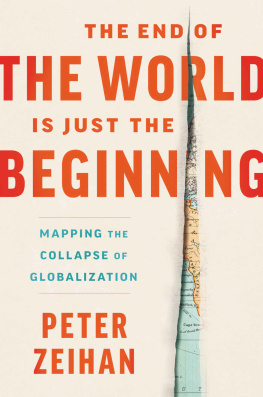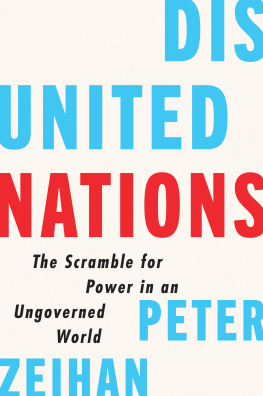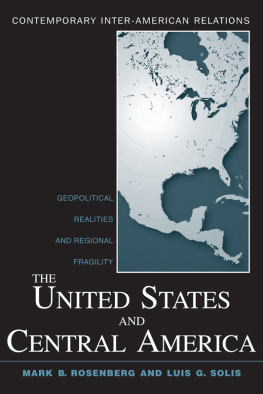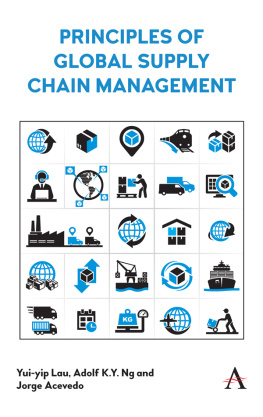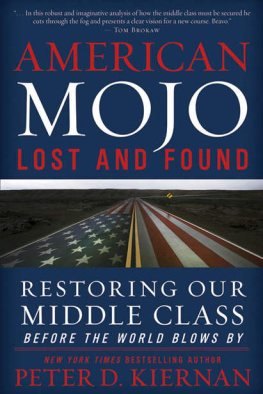For me, dedications are difficult because Im... lucky.
I was born in the right country at the right time to grow up in safety.
Simultaneously old enough and young enough to recognize the disconnects and opportunities in the shift from duck-and-cover to 5G.
Ive been blessed with more mentors than I can count, something only possible because they chose to play the role.
Im in my field only because of those who have come before, and Im able to read the future only because of the questions Im asked by those who will come after.
Without the village, my workmy lifewould not be possible.
So thank you.
Thank you all.
This is the way the world ends
Not with a bang but a whimper.
T. S. Eliot
Should we be so lucky.
German proverb
Contents
The past century or so has been a bit of a blitzkrieg of progress. From horse-and-buggy to passenger trains to the family car to everyday air travel. From the abacus to adding machines to desktop calculators to smartphones. From iron to stainless steel to silicon-laced aluminum to touch-sensitive glass. From waiting for wheat to reaching for citrus to being handed chocolate to on-demand guacamole.
Our world has gotten cheaper. And certainly better. And most definitely faster. And in recent decades the paces of change and achievement have accelerated further. Weve witnessed the release of more than thirty ever-more-sophisticated versions of the iPhone in just fifteen years. Were attempting to shift wholesale to electronic vehicles at ten times the pace we adopted traditional combustion engines. The laptop Im tapping this down on has more memory than the combined total of all computers globally in the late 1960s. Not long ago I was able to refinance my home at a rate of 2.5 percent. (It was stupidly awesome.)
It isnt simply about stuff and speed and money. The human condition has similarly improved. During the past seven decades, as a percent of the population, fewer people have died in fewer wars and fewer occupations and fewer famines and fewer disease outbreaks than since the dawn of recorded history. Historically speaking, we live in an embarrassment of riches and peace. All of these evolutions and more are tightly interwoven. Inseparable. But there is a simple fact that is often overlooked.
They are artificial. We have been living in a perfect moment.
And it is passing.
The world of the past few decades has been the best it will ever be in our lifetime. Instead of cheap and better and faster, were rapidly transitioning into a world thats pricier and worse and slower. Because the worldour worldis breaking apart.
Im getting ahead of myself.
In many ways this book is the most quintessentially me project Ive done. My work lands me squarely at the intersection of geopolitics and demography. Geopolitics is the study of place, exploring how everything about us is an outcome of where we are. Demography is the study of population structures. Teens act different from thirty-somethings versus fifty-somethings versus seventy-somethings. I weave together these two disparate themes to forecast the future. My first three books were about nothing less than the fall and rise of nations. About exploring the big picture of the world to come.
But you can only speak at Langley so many times. To pay the bills I do something else.
My real job is a sort of hybrid public speaker/consultant (the fancy marketing term is geopolitical strategist).
When groups bring me in, its rare that they want to ruminate over the future of Angola or Uzbekistan. Their needs and questions are closer to home and their pocketbooks, wrapped up in a series of economic questions about trade and markets and access. What I do is apply geopolitics and demography to their problems. Their dreams. Their fears. I peel out the appropriate parts of my big picture and apply them to questions of electricity demand in the Southeast, or precision manufacturing in Wisconsin, or financial liquidity in South Africa, or the nexus of security and trade in the Mexico border region, or transport options in the Midwest, or energy policy during the turn of American administrations, or heavy industry in Korea, or tree fruits in Washington State.
This book is all that and more. So much more. Im once again using my trusty tools of geopolitics and demography to forecast the future of global economic structures, or, to be more accurate, their soon-to-be lack thereof. To showcase the shape of the world just past the horizon.
The crux of the problem we all face is that, geopolitically and demographically speaking, for most of the last seventy-five years we have been living in that perfect moment.
At the end of World War II, the Americans created historys greatest military alliance to arrest, contain, and beat back the Soviet Union. That we know. Thats no surprise. What is often forgotten, however, is that this alliance was only half the plan. In order to cement their new coalition, the Americans also fostered an environment of global security so that any partner could go anywhere, anytime, interface with anyone, in any economic manner, participate in any supply chain and access any material inputall without needing a military escort. This butter side of the Americans guns-and-butter deal created what we today recognize as free trade. Globalization.
Globalization brought development and industrialization to a wide swath of the planet for the first time, generating the mass consumption societies and the blizzard of trade and the juggernaut of technological progress we all find so familiar. And that reshaped global demographics. Mass development and industrialization extended life spans, while simultaneously encouraging urbanization. For decades that meant more and more workers and consumers, the people who give economies some serious go. One outcome among many was the fastest economic growth humanity has ever seen. Decades of it.
The Americans postwar Order triggered a change in condition. By shifting the rules of the game, economics transformed on a global basis. A national basis. A local basis. Every local basis. That change of condition generated the world that we know. The world of advanced transport and finance, of ever-present food and energy, of never-ending improvements and mind-bending speed.
But all things must pass. We now face a new change in condition.
Thirty years on from the Cold Wars end, the Americans have gone home. No one else has the military capacity to support global security, and from that, global trade. The American-led Order is giving way to Disorder. Global aging didnt stop once we reached that perfect moment of growth. Aging continued. Its still continuing. The global worker and consumer base is aging into mass retirement. In our rush to urbanize, no replacement generation was ever born.
Since 1945 the world has been the best it has ever been. The best it will ever be. Which is a poetic way of saying this era, this worldour worldis doomed. The 2020s will see a collapse of consumption and production and investment and trade almost everywhere. Globalization will shatter into pieces. Some regional. Some national. Some smaller. It will be costly. It will make life slower. And above all, worse. No economic system yet imagined can function in the sort of future we face.
This devolution will be jarring, to say the least. Its taken us decades of peace to suss out this world of ours. To think that we will adapt easily or quickly to such titanic unravelings is to showcase more optimism than Im capable of generating.

